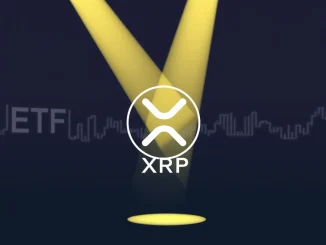
Big news hitting the wires for crypto enthusiasts, especially those interested in the Crypto.com ecosystem! A significant development has just surfaced regarding a potential new investment product that could bridge traditional finance and the world of digital assets: a Staked CRO ETF. This move signals growing interest from investment firms in offering regulated exposure to specific cryptocurrencies and their yield-generating mechanisms.
What’s Behind the Canary Capital SEC Filing?
According to reports from JinSe Finance, crypto investment firm Canary Capital has taken a notable step by filing an S-1 registration statement with the U.S. Securities and Exchange Commission (SEC). This S-1 filing is the initial registration form required by the SEC for public companies based in the U.S. It’s essentially the first formal step a company takes when planning to offer securities to the public. In this case, the proposed security is an Exchange Traded Fund (ETF) focused on Staked CRO.
Think of an ETF as a basket of assets you can buy and sell on a stock exchange, much like a traditional stock. A Crypto ETF would hold cryptocurrencies, offering investors exposure without needing to directly buy, store, or manage the digital assets themselves. The ‘Staked’ part of the proposed Staked CRO ETF is particularly interesting, suggesting the fund aims to not only hold CRO, the native token of the Crypto.com blockchain, but also participate in staking to potentially earn rewards.
Why is a Staked CRO ETF Significant?
The filing by Canary Capital for a product like this highlights several key trends in the market:
- Growing Institutional Interest: More traditional and crypto-native firms are exploring ways to package digital assets for a wider investor base.
- Demand for Yield: The inclusion of ‘Staked’ indicates recognition of investor appetite for yield-generating opportunities available in the crypto space, beyond just price appreciation.
- Regulatory Navigation: Filing with the SEC filing shows an attempt to navigate the complex U.S. regulatory landscape to bring a novel crypto product to market.
- Mainstream Access to CRO: If approved, a CRO ETF could make it easier for traditional investors to gain exposure to Crypto.com’s token without dealing with crypto exchanges or staking protocols directly.
What Does This Mean for Investors and CRO?
For investors, an approved Staked CRO ETF could offer a regulated, potentially more accessible way to invest in CRO and benefit from staking rewards within a traditional brokerage account. This could simplify portfolio management and potentially appeal to those hesitant about direct crypto ownership.
For CRO itself, the potential launch of such an ETF could introduce new demand from institutional and retail investors using traditional investment platforms. This could positively impact liquidity and potentially the price of the token, although SEC approval is far from guaranteed and the process can be lengthy.
What Are the Potential Hurdles?
Getting a crypto-related ETF approved by the SEC filing is historically challenging. While the U.S. has seen the approval of Bitcoin spot ETFs, products involving staking add another layer of complexity. The SEC has previously expressed concerns about staking, viewing it potentially as a security offering. Canary Capital will need to address these regulatory considerations thoroughly in their S-1 filing and subsequent discussions with the commission.
Looking Ahead: The Road to Approval
This SEC filing is just the beginning of a potentially long process. The SEC will review the S-1 statement, which includes detailed information about the proposed fund’s structure, risks, and operations. There will likely be rounds of comments and amendments before any decision is made. The outcome remains uncertain, but the filing itself is a notable step for both Canary Capital and the broader crypto market’s push towards regulated investment products.
In Conclusion
The filing by Canary Capital for a Staked CRO ETF marks an exciting development in the evolution of crypto investment products. It reflects the market’s desire for regulated access to digital assets and their unique features like staking. While the path to SEC approval is challenging, this move is a positive indicator of growing efforts to integrate crypto into traditional financial frameworks, potentially opening up new avenues for investors interested in CRO and the yield opportunities it offers.



